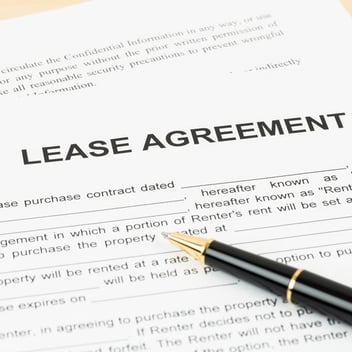Buying Rental Properties Out of State: Pros, Cons, and Pro Tips
There may be no place like home, but that doesn’t mean you can’t click your heels to the thought of greener investing pastures from time to time. While it may sound like a stretch to expand your rental property investment business across state lines, it could also be the next logical step in building an enterprise with real staying power.
That said, investing in out-of-state properties isn’t right for everyone, or else everyone would do it. This guide includes a quick run-down of the pros and cons to help you make the best choice for your portfolio, along with some tips if you do decide to cross state lines.
Why buy out of state?
As a property investor, you understand why someone decides to invest in rental properties in their own town or state. What you may be less familiar with is why someone would choose to cross state lines and put their money into properties that are thousands of miles away from their home base.
Location will always be a critical factor in real estate investing. A home that’s worth $200,000 in the middle of nowhere might be worth over one million dollars in a more densely populated area. The variability of real estate valuation is one reason that an investor might choose to look outside of their own state for opportunities.
For example, a real estate investor living in high-demand states like New York or California may not be able to afford or profit from investment property without looking elsewhere for it. Similarly, an investor living in an area with low real estate ROI or falling valuations may not want to wrap their money up in diminishing returns.
The bottom line is that sometimes the grass really is greener on the other side—if you think you might be able to boost your ROI by crossing state lines, then that’s as good a reason as any to investigate the pros and cons of this approach.
The advantages of out-of-state properties
The investors who decide to take their portfolio into new states don’t do it for no reason. Here are some of the most significant advantages of buying out-of-state rental property.
Lower property costs
One of the most obvious reasons for buying rental investment property out of state is to find a better deal on potential investment opportunities. If you live somewhere with high real estate costs, like California, New York, or Washington, you might struggle to break even on a rental property, let alone profit.
But, if you’re willing to look outside of your own state, the high home prices surrounding you don’t have to mean that you’re shut out of rental property investing. Finding a neighboring state with a more favorable real estate investment climate could be a more profitable solution than staying home.
Better return on investment
Along the same vein, your overall ROI could be a lot better depending on the states where you’re looking at investing. For example, if a different state has a better appreciation rate than your own, you could be looking at better returns on your property. Other factors like the cost of the property, the condition, average rent prices, the tax ramifications of buying an out-of-state rental property, and more can affect how much of your gross income actually comes home with you.
New market opportunities
Sometimes, the local real estate market isn’t jiving with your personal rental property investment strategy and goals. In that case, it might be worth your while to look across the fence to other states for market conditions that match your investing strategy.
Additionally, other states might hold the opportunity to break into new market segments that aren’t available or thriving in your own area, such as if you’d like to focus on a different demographic or type of housing than you typically would.
Diversified portfolio
Diversification is one of the key factors in reducing your investments’ risk profiles. If you don’t have all your eggs in one basket, it’s less likely they’ll all get cracked. Sometimes, state-specific legislation, taxation, or market trends can send your local investments into an ROI tailspin, or at least reduce their profitability. In these cases, having property in other states could be the thing that keeps your rental investment portfolio afloat.
The disadvantages of out-of-state properties
There’s no place like home. While investing across state lines comes with advantages, it’s not all smooth sailing. Here are a few disadvantages to consider before you commit any money to buy rental investment property out of state.
Purchasing property without a walkthrough is risky
In an ideal scenario, you would travel to see any potential investment properties in person before buying them. However, depending on the demand for property in your chosen state, you may not get the opportunity to schedule a viewing time before another buyer swoops in with a cash offer. It may also be harder to find a property at all without being able to rely on your existing local network of sellers, investors, and real estate agents.
Managing a property from a distance can be a hurdle
Stuff happens. Pipes freeze and burst, air conditioning units go out, trees fall on houses, and more.
In addition to those emergency situations, there are also a lot of little things that go into maintaining a property and hopefully helping prevent some of those huge maintenance bills, such as winterizing properties, changing air filters, checking smoke alarms, making sure lawns are mowed and snow is removed, etc.
While this is an old hat for a property within a few hours of your home, it can feel like death by a thousand cuts when you’re trying to self-manage a property in another state.
If you buy a rental property in another state, you have a few different options for managing it. You could hire a full-time property manager in the same state as your new property. While this is a reliable option that takes the extra work and travel time off your plate, it also cuts into your increased ROI significantly, which may defeat the purpose of looking out of state to begin with.
Your second option is to be a DIY landlord and manage all aspects of the property management yourself. While this is an option for dedicated landlords, most people, especially those with day jobs or other obligations, might find the extra time commitments hard or even impossible.
The last option is in the middle: hiring a third-party property management solutions provider. For example, Flcrm provides different services like maintenance coordination, taking tenant calls, and helping schedule viewings while allowing landlords to keep as much day-to-day involvement as they like. Using a service like this, an out-of-state landlord can cut down on their time commitments without sacrificing too much of their profit margins to a full-time property manager.
You may not get to meet your tenants during screening
Depending on how far you live from your new property, it may not always be feasible to meet with new tenants before approving their applications. That means that the first time you meet your tenants might be when you’re handing over the keys, and by that time, it’s too late to do anything if you notice red flags that weren’t apparent in their digital applications. Conducting interviews with potential tenants is one way to mitigate this effect, but it’s still something to keep in mind.
Different rental and tenant laws
Rental regulations can vary by state, so you may have to take some time and familiarize yourself with a new set of legal practices for things like rent, tenant increases, notice, lease terms, and more. If you’re not familiar with the tenant laws in different states, it may be a good idea to hire a local attorney with real estate experience.
Tips for purchasing rental properties in a different state
If you’ve crunched the numbers and decided that investing across state lines is the best for you, here are some tips to keep in mind as you start the next chapter of your investment journey.
How to find opportunities across state lines
In your own state, you may have connections that help you find new properties for investment. In a new state, you’ll have to find new boots on the ground to search for opportunities. Some places you can look for out-of-state opportunities include the MLS, online sites like Zillow and Craigslist, and local classifieds.
Get an inspection
Getting a professional inspection is always a good idea, but it’s especially critical if you’ll be investing in a property you may have limited opportunities to see in the brick and mortar. Connecting with a reputable property inspector in the area (or even two for an extra opinion) before you buy can potentially save you a lot of sunk costs later.
Get pre-approved
The last thing you want is to miss out on your dream property because you were wrapped head to toe in the red tape. Getting pre-approved for a mortgage and ensuring you understand local laws and rates will help the closing process proceed much more smoothly once you’re ready to sign on a home.
Stick with the demographic you know
While out-of-state investments are a great opportunity to break into new market segments you’d otherwise be shut out of, it’s also a good idea not to stray too far from your previous experiences. Understanding local tenant laws and regulations will likely be enough to handle without sweating over the best way to find penthouse tenants when your previous experience is in leasing to college students in studio apartments.
Find a property management solution
Completing the rest of the steps for an out-of-state investment will only ever give you a short runway if you don’t make a plan for property management. If you don’t want to hire a full-time property manager or put in the commuting time to self-manage, you can also partner with a property management solutions provider like Flcrm for a happy medium.
Closing thoughts
If your local market doesn’t match your investment strategy for whatever reason, investing across state lines could be an excellent way to ensure you’re still putting your money into worthwhile rental properties. Just be sure to crunch the numbers and do your research to ensure that this method is right for you, and if you do invest in another state, take all the necessary precautions like inspections and property management coordination.



